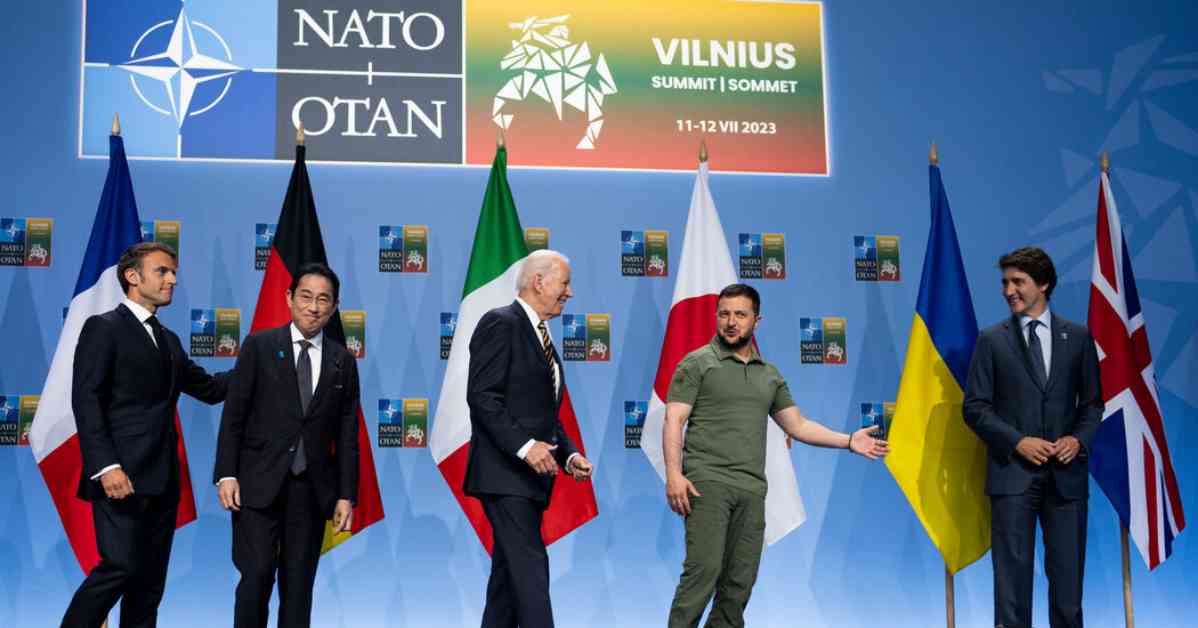As world leaders gather in Washington for the 75th anniversary of NATO, the atmosphere is one of uncertainty and concern. The summit was initially planned to showcase a united front against aggression, particularly in light of the conflict in Ukraine. However, the shadow of President Biden’s future and the potential return of former President Trump loom large over the event.
President Trump’s previous criticisms of NATO, calling it “obsolete” and questioning its relevance, have raised doubts among European allies about the alliance’s future. With the possibility of a second Trump term, questions arise about NATO’s ability to stand up to threats like Russia without strong American support.
President Biden, a staunch advocate for NATO, will address the leaders at the historic Andrew W. Mellon Auditorium, where the alliance was first established in 1949. At 81 years old, Biden’s leadership and commitment to the alliance will be closely scrutinized by both allies and adversaries alike.
The uncertainty surrounding Biden’s political future adds another layer of complexity to the summit. As leaders from 32 member countries gather, all eyes will be on Biden to see if he can continue to lead the alliance effectively for another four years.
The importance of NATO in today’s world, where superpower conflicts are on the rise, cannot be understated. The alliance’s ability to adapt and respond to evolving threats will be crucial in ensuring global security and stability.
In the face of these challenges, the leaders at the NATO summit must work together to address security gaps, strengthen the alliance, and reaffirm their commitment to collective defense. Only by standing united can NATO effectively deter aggression and protect its member countries in an increasingly complex and uncertain world.


















